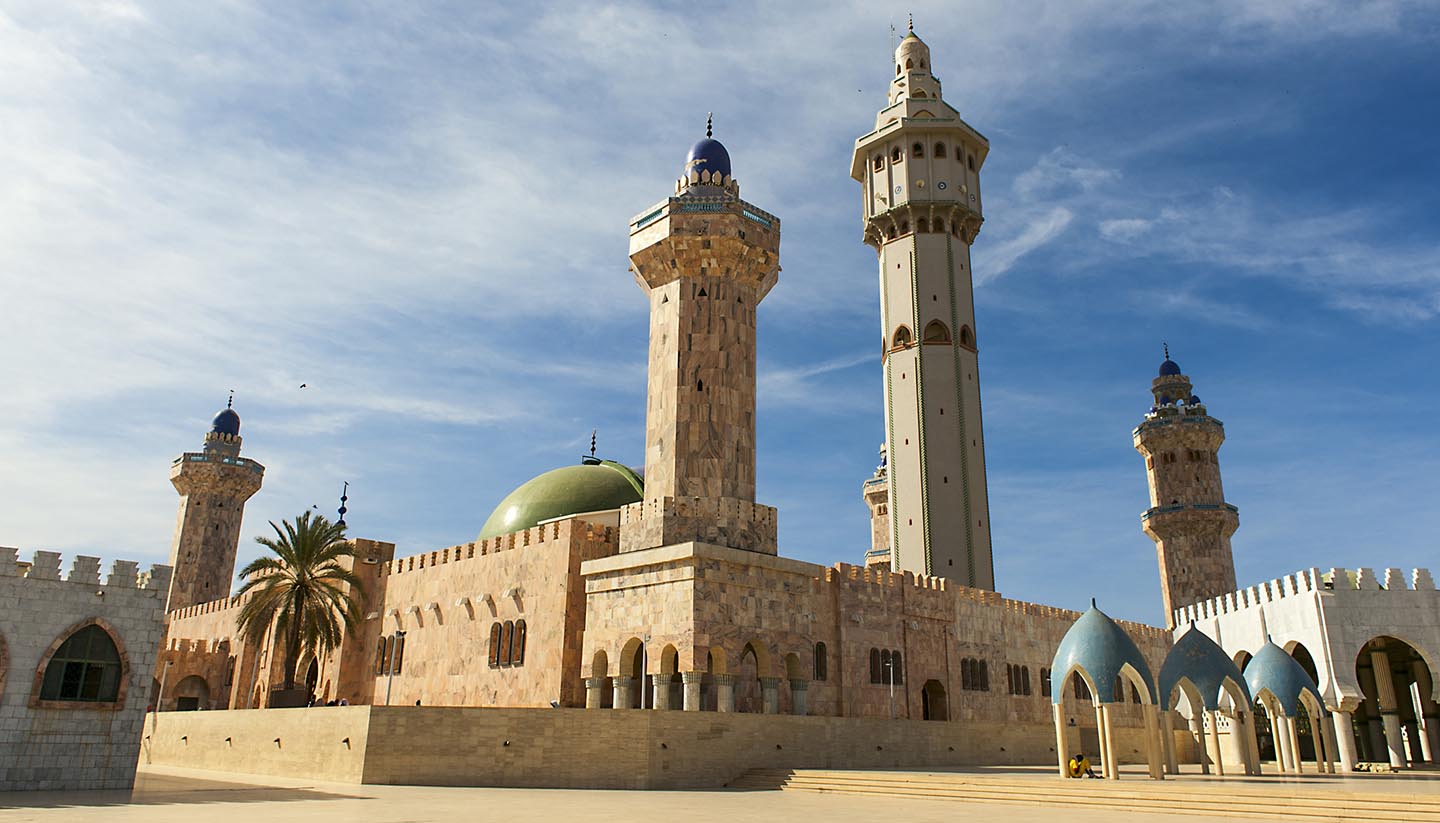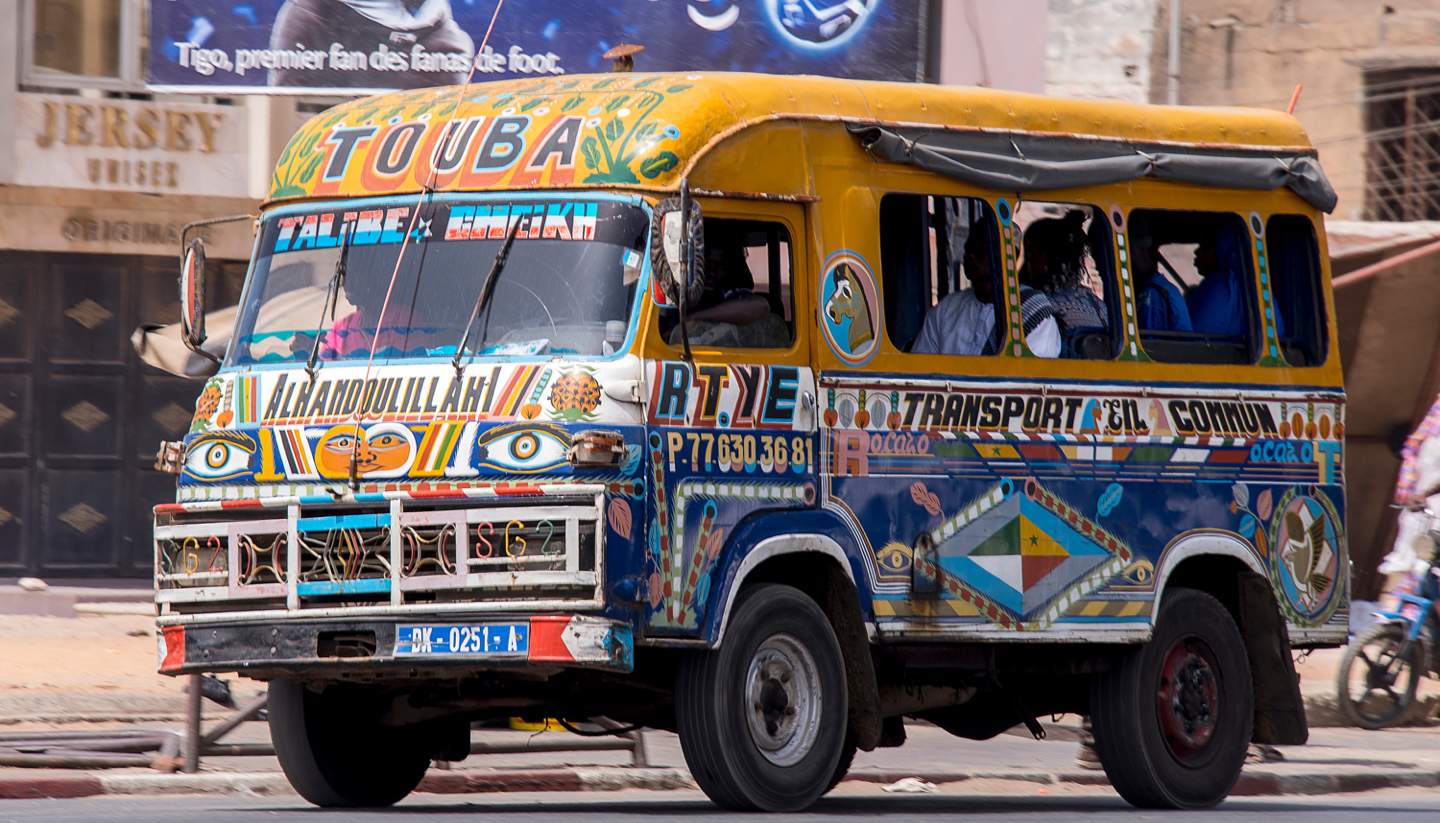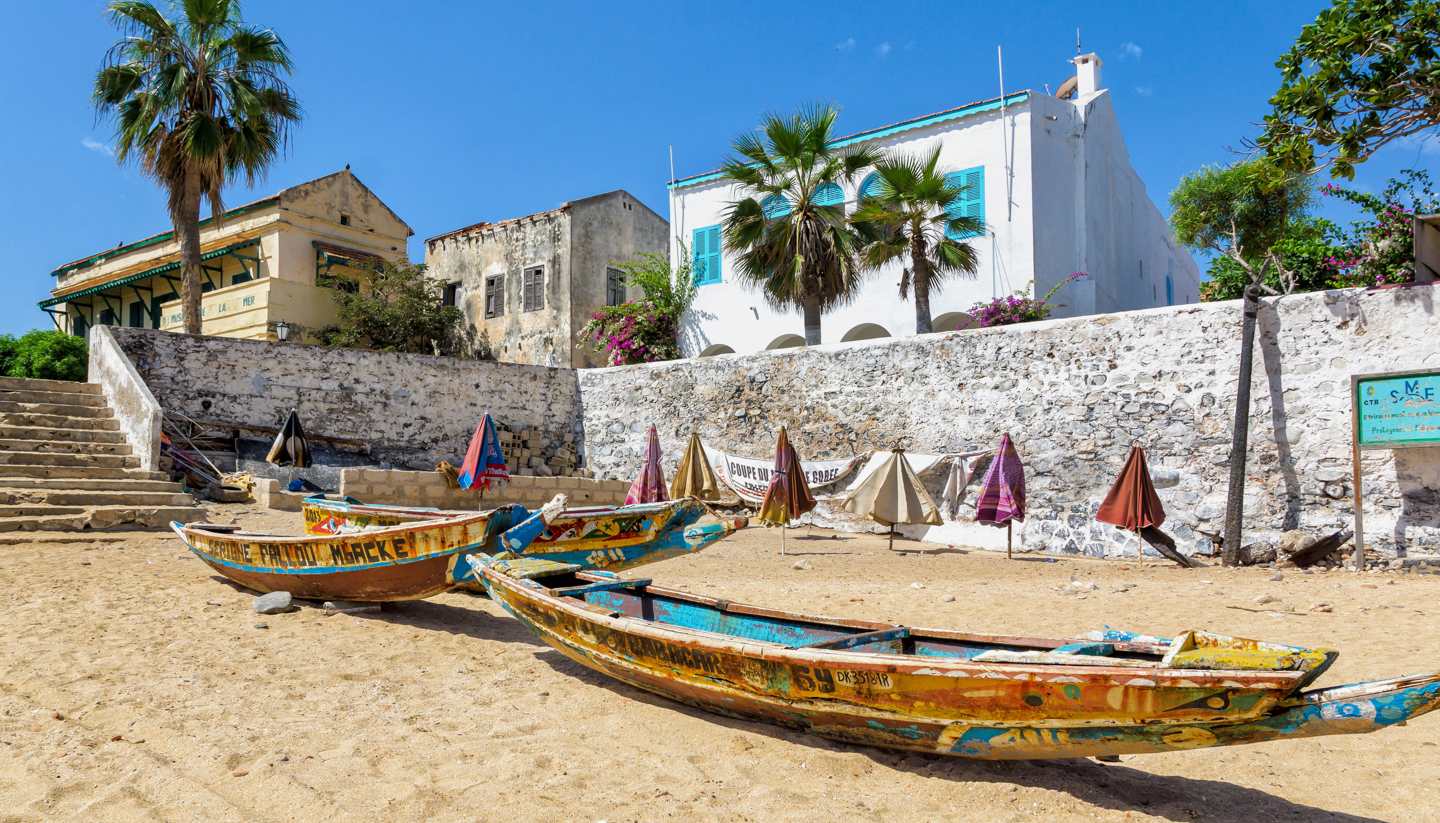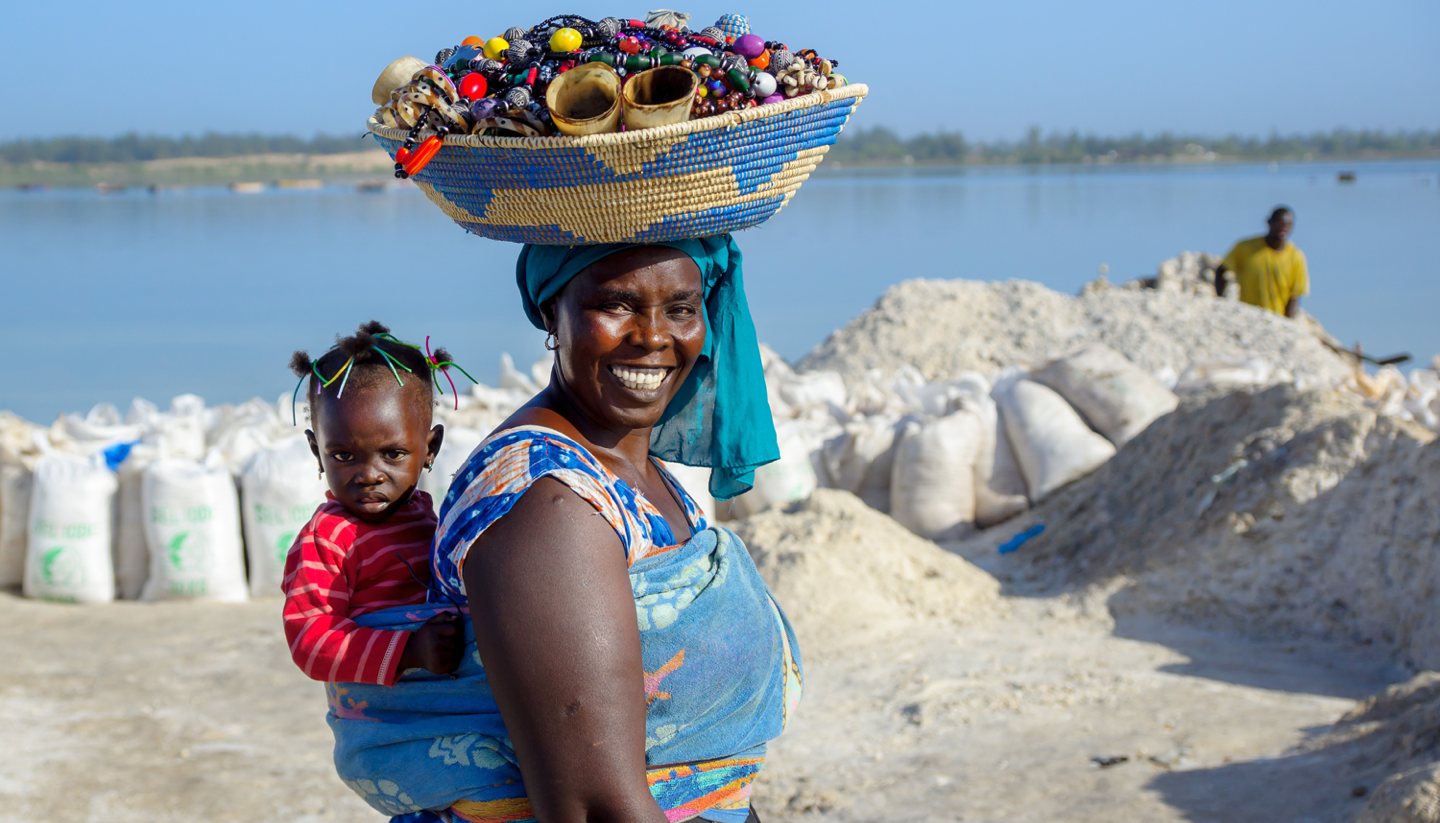Senegal travel guide
About Senegal
Senegal is often known as 'The Country of Teranga'. Teranga means hospitality in the local tongue of Wolof, and you will indeed find Senegal to be one of the friendliest spots in West Africa. The locals are hospitable - once you get to know them, you may find yourself being invited to share a steaming cup of tea or even some delicious home-cooked meals.
A simple wander around the local markets will unearth handmade fabrics and authentic arts and crafts, while on almost every street corner in the towns and cities you'll find musicians full of energy. It is also worth checking out bustling restaurants that serve up rich Senegalese cuisine influenced by the Maghrebis (inhabitants of northern Africa), French and Portuguese.
Most visitors land in Dakar, the chaotic, fast-growing capital, packed with great nightlife and restaurants. However, Senegal also offers beautiful, untouched rural scenery, along with golden beaches, tropical rainforests and semiarid grasslands. Suffice to say, Senegal offers something unique for every traveller.
Indeed, the diversity of Senegal is perhaps its best feature. The southern Casamance region boasts palm-fringed tropical beaches. The western region is bounded by the Atlantic Ocean, featuring a series of wetlands teeming with biodiversity, including one of the largest concentrations of migratory birds in the world. Then you have the relatively flat plains which give way to the mountainous region in the southeast – this is where the highest point of Senegal is found, reaching an elevation of 581m (1,906ft) near Népen Diakha.
Adventurous travellers come to Senegal to surf some of the best waves in West Africa in year-round warm waters, hike through lush tropical rainforest-clad mountains, discover towering waterfalls or go deep-sea fishing in the depth of the continental shelf. With birds, giraffes, elephants, hippos, rhinos, lions and panthers abound, wildlife viewing is also high on the agenda among some travellers.
Highbrow tourists won't be disappointed either. There are year-round music and art festivals such as the Saint-Louis Jazz Festival, as well as well-managed museums displaying some of the most interesting artefacts found in the region. You'll also find well-preserved colonial ruins and sites that remember the dehumanising Transatlantic slave trade.
Senegal is easily accessible from Europe and the USA. The country offers an array of experiences, has warm temperature year-round and one of the best infrastructures in the region, so it is time to put Senegal on your radar and come for a visit.
Key facts
196,712 sq km (75,951 sq miles).
16,657,759 (UN estimate 2020).
87 per sq km.
Dakar.
Republic.
Bassirou Diomaye Diakhar Faye since 2024.
Prime Minister Ousmane Sonko since April 2024.
Travel Advice
Before you travel
No travel can be guaranteed safe. Read all the advice in this guide. You may also find it helpful to:
- see general advice for women travellers
- read our guide on disability and travel abroad
- see general advice for LGBT+ travellers
- read about safety for solo and independent travel
- see advice on volunteering and adventure travel abroad
Travel insurance
If you choose to travel, research your destinations and get appropriate travel insurance. Insurance should cover your itinerary, planned activities and expenses in an emergency.
About FCDO travel advice
The Foreign, Commonwealth & Development Office (FCDO) provides advice about risks of travel to help you make informed decisions. Find out more about FCDO travel advice.
Get travel advice updates
Sign up to get email notifications when this travel advice is updated.
Follow FCDO:
This information is for people travelling on a full ‘British citizen’ passport from the UK. It is based on the UK government’s understanding of Senegal’s current rules for the most common types of travel.
The authorities in Senegal set and enforce entry rules. If you’re not sure how these requirements apply to you, contact the Embassy of Senegal in the UK.
Passport validity requirements
To enter Senegal, your passport must have an ‘expiry date’ at least 6 months after the date you arrive.
Check with your travel provider that your passport and other travel documents meet requirements. Renew your passport if you need to.
You will be denied entry if you do not have a valid travel document or try to use a passport that has been reported lost or stolen.
Visa requirements
You can visit Senegal without a visa for up to 3 months.
You need to show border officials evidence of return or onward travel and proof of your arranged accommodation. If you do not have these, you may be refused entry.
If you want to stay longer than 3 months, you must register with local authorities after you arrive. They will issue you with a Carte d’étranger, which you must carry as identification.
Vaccine requirements
You must have a certificate to prove you’ve had a yellow fever vaccination if you’re arriving from a country listed as a transmission risk. This includes if you have transited through the airport of a country with risk of yellow fever transmission. Babies aged 9 months and under are exempt.
You may need a yellow fever certificate for onward travel to some other countries, due to the risk of yellow fever in Senegal.
For full details about health entry requirements and recommended vaccinations, see TravelHealthPro’s Senegal guide.
Customs rules
There are strict rules about goods you can take into or out of Senegal (in French). You must declare anything that may be prohibited or subject to tax or duty.
This guide also has safety advice for regions of Senegal.
Terrorism
There is a high threat of terrorist attack globally affecting UK interests and British nationals, including from groups and individuals who view the UK and British nationals as targets. Stay aware of your surroundings at all times.
UK Counter Terrorism Policing has information and advice on staying safe abroad and what to do in the event of a terrorist attack. Find out how to reduce your risk from terrorism while abroad.
Terrorism in Senegal
Terrorist attacks in Senegal cannot be ruled out.
Attacks could be indiscriminate, including in places visited by foreigners. Terrorist groups in the Sahel region in West Africa have shown their capability and intent by mounting attacks in Mali, which shares a border with Senegal.
Terrorist kidnap
There is a threat of kidnapping in the wider Sahel region, which incorporates Mali, Mauritania, Niger, Chad and Burkina Faso, so take precautions to reduce the risk of kidnap in remote regions and border areas.
British nationals are seen as legitimate targets, including tourists, humanitarian aid workers, journalists and business travellers. If you are kidnapped, the reason for your presence is unlikely to protect you or secure your safe release.
The long-standing policy of the British government is not to make substantive concessions to hostage takers. The British government considers that paying ransoms and releasing prisoners builds the capability of terrorist groups and finances their activities. This can, in turn, increase the risk of further hostage-taking. The Terrorism Act (2000) makes payments to terrorists illegal.
Political situation
There are frequent demonstrations about political issues in Dakar and other cities.
Demonstrations can turn violent. Protestors sometimes block major roads, including the road between Blaise Diagne International Airport and the city of Dakar.
Monitor local media and ask local contacts about possible upcoming protests. Ahead of big demonstrations, if you’re in Dakar or another major city, consider stocking up on food, water and fuel. Once they have begun, you should:
- continue to monitor local media for information
- follow the instructions of local authorities
- stay away from areas where demonstrations are taking place and exercise caution
If you are in doubt about where protests are taking place, or the level of safety of an area, stay at home or in your hotel.
Foreign nationals have been prosecuted for attending protests that have not been approved by the government.
Crime
Street crime
Pickpocketing and bag-snatching, especially from scooters or motorbikes, are common in Dakar.
This type of crime is more common in the run-up to religious festivals. It can also increase early in the month after salaries are paid. To reduce your personal risk:
- avoid walking alone in the evening and after dark, especially if you are a woman
- avoid wearing conspicuous jewellery and keep any handbags or satchels on the side of your body that is furthest from the street
- step inside a shop or restaurant if you need to use your mobile
Bogus taxis at the airport
There is a risk of bogus taxi drivers pretending to know you and then overcharging you for the journey from the airport. Pre-arrange transport with your accommodation or an authorised operator. If you’re expecting someone to collect you at the airport, make sure they show you their ID.
Fake currency
Be cautious when changing cash, as there is a risk you will be scammed with fake money. Use ATMs or reputable exchange bureaux.
Laws and cultural differences
Senegal is a predominantly Muslim country. Dress and behave modestly in public, especially during the holy month of Ramadan or if you visit religious areas. In the main tourist areas there is more acceptance of western-style holiday clothing.
Bars and restaurants usually serve alcoholic drinks but drunkenness is considered offensive and penalties for drink-driving are severe.
Kissing as a greeting is acceptable, but kissing romantically in public is not.
Ramadan
Ramadan is a holy month for Muslims. The dates vary by year and country. During this time, do not drink alcohol or wear revealing clothes in public during Friday prayers between 1pm and 3pm.
Get more advice when you arrive from your tour guide, hotel or business contacts.
You should also:
- check opening hours of shops and restaurants
- be aware that fasting can cause tiredness, particularly during the late afternoon and early evening when traffic will also be heavier than usual
- be patient and show tolerance
Illegal drugs and prison sentences
There are severe penalties for possession, use or trafficking of illegal drugs. People accused regularly spend lengthy periods on remand before being tried. The maximum sentence for trafficking is 20 years.
Prison conditions in Senegal are considerably poorer than in UK prisons. There may be problems such as overcrowding, lack of adequate meals, clean drinking water and electricity, and poor sanitation.
Money
Only use reputable exchange bureaux to change your money. Dakar has ATMs that accept foreign bank cards, but there are few ATMs or bank facilities in the rest of the country. Withdrawal limits can be low, and ATMs regularly run out of money, including in Dakar.
Larger or more upmarket establishments that cater for tourists usually accept foreign credit cards. Mobile payment applications, such as Orange Money and Wave, are also widely used around the country.
LGBT+ travellers
Same-sex sexual activity is illegal. Same-sex relationships are generally not tolerated in Senegal’s conservative society.
Read more advice for LGBT+ travellers.
Transport risks
Road travel
If you are planning to drive in Senegal, see information on driving abroad.
You can drive in Senegal with a UK driving licence for up to 6 months. A 1968 international driving permit may be helpful in offering a translation for traffic officials. If you’re staying longer or living in Senegal, you must get a Senegalese driving licence.
Road conditions
Most main roads are of good quality, but minor roads can be in very poor repair. During the rainy season from June to September, torrential rains can cause floods and landslides which damage roads.
Driving standards are not the same as in the UK. Drivers can make sudden movements without signalling and speeding is common. Many taxis and public mini-buses (‘cars rapides’) are not roadworthy by UK standards. Driving after dark is more dangerous because of poorly lit roads and vehicles without lights.
Traffic congestion gets worse in the run-up to and during religious festivals.
If you have an accident, you must contact the police on 17 and wait for them to arrive at the scene. Do not move your car until a police officer gives you permission. In remote areas, go to the nearest police station to report the accident.
This section has safety advice for regions of Senegal. It only covers regions where FCDO has specific advice.
You should also read FCDO’s overall travel advice and safety and security advice.
Northern and eastern border areas
Take particular care in remote areas of Senegal near the border areas with Mauritania and Mali, and to the east of the city of Podor as far as Kidira.
Casamance Region
Casamance, the spur of land south of The Gambia, has suffered from decades of low-intensity separatist violence, largely directed at Senegalese security forces. Be on alert for clashes if you are travelling in the region. The risk of attacks is lower in the main tourist areas of the Casamance.
When driving:
- avoid travelling at night
- stick to main roads
- travel in convoy if possible
- do not pull over if anyone tries flag you down
- be aware that many roads in the Casamance are of low quality
Senegalese forces carry out minor operations near the border with The Gambia to combat wood trafficking.
Before you travel check that:
- your destination can provide the healthcare you may need
- you have appropriate travel insurance for local treatment or unexpected medical evacuation
This is particularly important if you have a health condition or are pregnant.
Emergency medical number
Call 15 and ask for an ambulance.
Contact your insurance company quickly if you’re referred to a medical facility for treatment.
Vaccine recommendations and health risks
At least 8 weeks before your trip check:
- check the latest vaccine recommendations for Senegal
- see where to get vaccines and whether you have to pay on the NHS travel vaccinations page
See what health risks you’ll face in Senegal including:
- dengue
- Zika virus
- yellow fever
Medication
The legal status and regulation of some medicines prescribed or bought in the UK can be different in other countries.
Read best practice when travelling with medicines on TravelHealthPro.
You’ll find pharmacies which accept UK prescriptions in major cities. The NHS has information on whether you can take your medicine abroad.
Healthcare in Senegal
Medical facilities in Dakar are reasonable, but are limited in the rest of Senegal. Make sure you have adequate travel health insurance and accessible funds to cover the cost of any medical treatment abroad and repatriation.
FCDO has a list of medical providers in Senegal where some staff will speak English.
Travel and mental health
Read FCDO guidance on travel and mental health. There is also mental health guidance on TravelHealthPro.
The Foreign, Commonwealth & Development Office (FCDO) cannot provide tailored advice for individual trips. Read this travel advice and carry out your own research before deciding whether to travel.
Emergency services in Senegal
Ambulance: 15
Fire: 18
Police: 17
Call 123 for the military police, who may be more responsive if you are in the countryside.
Contact your travel provider and insurer
Contact your travel provider and your insurer if you are involved in a serious incident or emergency abroad. They will tell you if they can help and what you need to do.
Refunds and changes to travel
For refunds or changes to travel, contact your travel provider. You may also be able to make a claim through insurance. However, insurers usually require you to talk to your travel provider first.
Find out more about changing or cancelling travel plans, including:
- where to get advice if you are in a dispute with a provider
- how to access previous versions of travel advice to support a claim
Support from FCDO
FCDO has guidance on staying safe and what to do if you need help or support abroad, including:
- finding English-speaking lawyers, funeral directors and translators and interpreters in Senegal
- dealing with a death in Senegal
- being arrested or imprisoned in Senegal
- getting help if you’re a victim of crime
- what to do if you’re in hospital
- if you’re affected by a crisis, such as a terrorist attack
Contacting FCDO
Help abroad
See how to get help from the UK government abroad including in an emergency.
Help in the UK
You can call FCDO in London if you need urgent help because something has happened to a friend or relative abroad.
Telephone: 020 7008 5000 (24 hours)
Get travel advice updates
Sign up to get email notifications when this travel advice is updated.
Follow FCDO:
Risk information for British companies
The Overseas Business Risk service offers information and advice for British companies operating in Senegal on how to manage political, economic, and business security-related risks.





